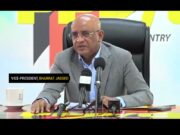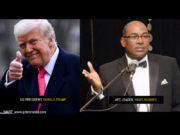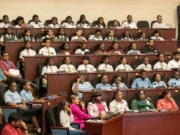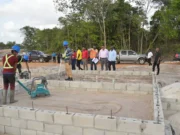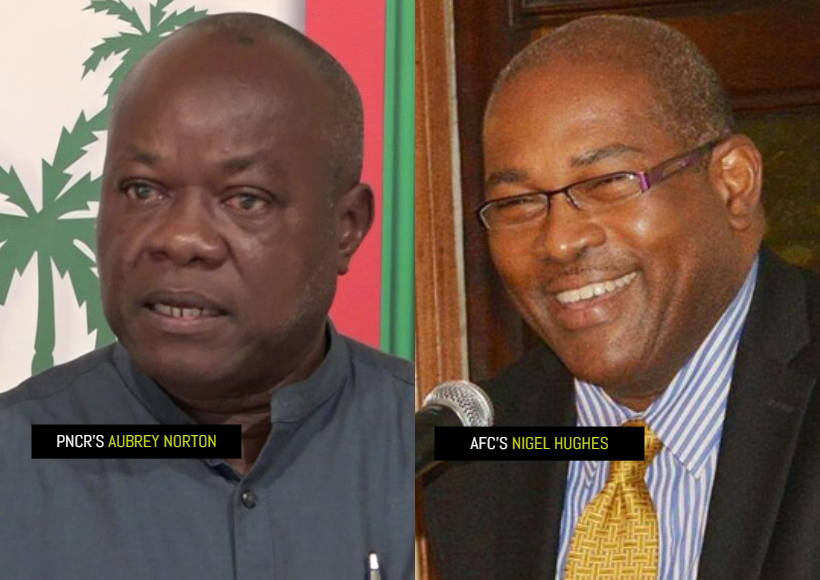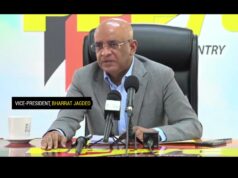Who from the opposition parties should challenge the Presidential Candidate of the ruling party at next year’s General and Regional Elections? The process to determine the contender from a united main opposition seems to boil down to a classic bout between number and substance. Should the challenger come from a party with the most supporters, or should it be a candidate who may have a better plan but fewer followers?
The answer is still to come as the two opposition parties, the People’s National Congress Reform (PNCR) and the smaller, Alliance for Change (AFC) head into their internal elections. If united in the 2025 elections against the incumbent, People’s Progressive Party/Civic (PPP/C) government, the PNCR and its associated small parties collectively known as the A Partnership for National Unity (APNU) and the AFC, can only put forward one presidential candidate.
Aubrey Norton, the current PNCR leader is unopposed at his party’s election following the bowing out of challengers and fellow legislators, Amanza Walton-Desir and Roysdale Forde S.C.
Attorney-at-law Nigel Hughes, who has been a featured counsel in many opposition-mounted cases against the government, is vying for the AFC Leadership. He will go up against the former Deputy Mayor of Georgetown and current Opposition Member of Parliament, Sherod Duncan.
If both parties unite next year, will the APNU, from whose ranks the presidential candidate is customarily drawn, concede to the nomination of a candidate from a smaller party?
Numbers
According to Norton, while that decision may lie with the PNCR and the collective opposition, along with what the nation determines, one cannot deny that numbers will play an integral role in determining a consensus candidate.
During an appearance on “Politics 101”, hosted by the Working Peoples’ Alliance (WPA) member, Dr David Hinds, Norton said that “weight” may determine the outcome of who is nominated to lead the opposition at the poll.
“Any talk about presidential candidate has to be weighted; what weight does the particular person or party bring and then you can discuss and move forward,” he said.
Further pressed to say if the PNCR under his leadership is willing to see the nomination go to someone outside the party, Norton said that the PNCR membership will speak more on this issue at the level of Congress.
He also noted that there is a motion currently at the party level which calls on him to take up the mantle as that presidential candidate.
“If they say that I should be the presidential candidate, [then] who am I to go telling others that I’m going to make them the presidential candidate,” he noted.
Norton later went on to say that his party is strong, does good work and is not willing to concede to anyone who does not understand the culture and direction of the PNCR.
“I don’t believe that we should just take the hard work we do and give it to anybody who just fly off of a tree top, land on the ground and say you must be the presidential candidate,” Norton remarked.
Nigel Hughes, who also appeared on the programme after Norton, was asked if he will consider being the consensus candidate for that broader coalition if it comes to fruition.
He responded, “I am open to doing whatever the people of Guyana think are in their best interest in advancing this country. If in that process, I am identified as the person or one of a group of persons to lead that process, I am open to it.”
Hughes, however, hastened to add that there is no “structure” to the idea of a consensus candidate. He noted that becoming such a candidate will not guarantee influence over the entire bloc.
Substance
Hughes also responded to Norton’s comment regarding the “weight” of a party in determining its worth and relevance.
“Guyana should always be at the forefront of our thoughts. It’s not the question of the weight you necessarily carry; it is the power of the ideas to transform,” he said.
Hughes added, “Let’s say the Working People’s Alliance puts forward a progressive developmental plan based on developing human resources as a priority for Guyana, I am not going to say, ‘David Hinds, sorry Doc, how many votes are you bringing to this?’ That’s not the basis of the discussion. We are talking about Guyana. And if we’re talking about Guyana, we’re talking about what are the policies and the ideas that will move it forward.”
